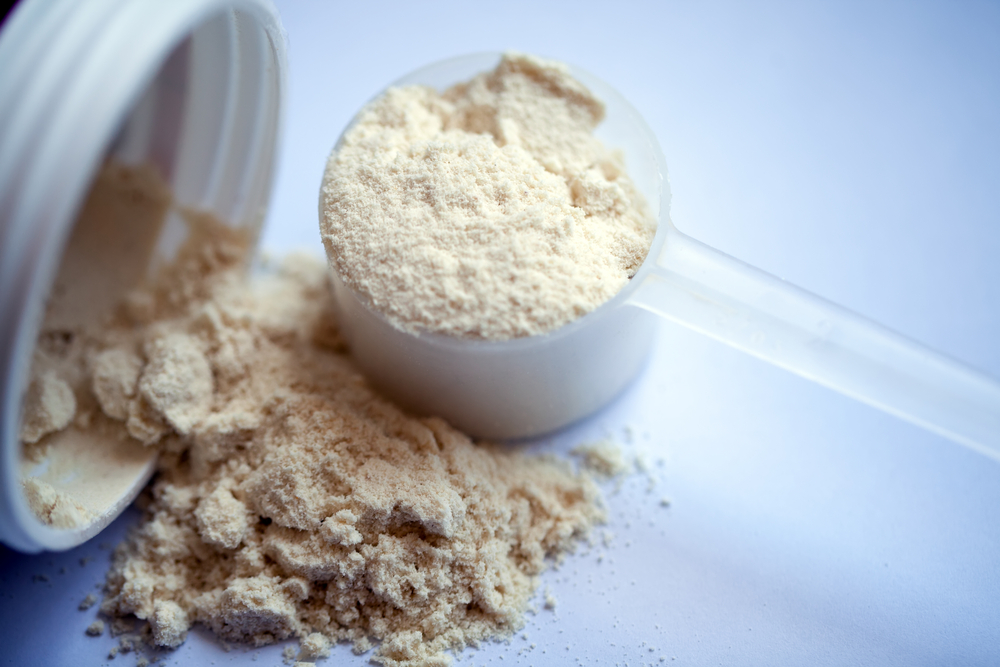By: Tayler Glenn
Protein is crucial in any diet, but finding the best protein for you is critical. No pressure! With hundreds (if not thousands) of protein powders, how are you supposed to know which one is going to work best for you? To make it simple, we’ll give you a few things to consider when choosing between the two major types: whey and plant protein powders.
Plant vs. Whey: What’s the Difference?
Despite numerous athletes from pro bodybuilders and Olympic athletes as living proof that plant-based proteins work, it’s hard to ditch the long-held belief that whey is king of the protein game. But, that isn’t necessarily true. Protein is incredibly important, and not just for bodybuilders and avid gym-goers! Even for those of us looking to lose weight and maintain healthy body composition, we need these basic building blocks of life for every cell in our body. Of course, there’s more than one type and this is where it can get a little tricky.
Whey Protein
There are two main proteins that come from milk: whey + casein.
Whey is found in the watery portion of milk which you’ve seen if you’ve ever opened a yogurt container to see liquid floating on top. The whey proteins you buy in stores is a mixture of proteins isolated from this liquid that’s gone through different processes to end up as the protein powder you enjoy!
Plant Protein
When talking about plant proteins, there are a few different types to consider. Each is usually named after the source of the protein, and here are a few of the most common ones:
- Pea
- Brown Rice
- Hemp
- Soy
Each protein from these plants is unique and will give your body different nutrients that can aid in a variety of things. Because of the differences, we’re seeing more combinations being offered in order to provide a more well-rounded product as the plant-based market continues to grow.

Plant vs. Whey: Things to Consider
Now that we have a basic understanding of what each protein is, we can break them down and see which one is best for your unique needs and lifestyle!
1. Which protein powder is more easily digested?
Plant Protein
Containing fiber and often digestive enzymes to help in digestion and absorption, plant proteins are a great option for anyone who already experiences digestive problems. With the exception of soy, many are hypoallergenic as they are naturally lactose and gluten-free which means your risk of digestive upset is pretty slim as long as you stick to protein powders with a short and clean ingredient list!
Whey Protein
Whey protein often has a better flavor and texture profile but it does come with a drawback: whey protein comes from milk! While many of us produce enough lactase – a digestive enzyme in our small intestine – to break down the lactose in whey protein powders, some of us were born lactose-intolerant or simply secrete less lactase as we age. This makes it more difficult for our bodies to absorb the protein we need.
Which is better for you?
If you have no dietary restrictions, then whey protein is an excellent option for both building muscle and losing fat. Many consider the rich flavor and wider flavor variety a definite bonus over plant protein powders, but this all depends on whether your body and lifestyle choices can accommodate the milk derivatives in the product.
If you want a worry-free option that you know won’t give you tummy issues, plant proteins are probably a better option. Just be sure to stay away from soy and soy-based blends if that’s a sensitivity you know you have to navigate!

2. Which protein powder offers the most complete protein?
Plant Protein
Plant proteins get a bad rep for only providing incomplete proteins, and the doubters aren’t wrong! Many plant proteins contain only some of the essential amino acids, and therefore cannot claim to provide a complete protein on their own. Many brands have taken note of this, however, and combine sources of incomplete proteins to give you all of the amino acids found in whey protein!
Whey Protein
This milk-derived protein is slightly a step above plant proteins in this sense. As all animal proteins are complete, you know that each scoop of whey is offering a complete protein with all 9 essential amino acids your body needs to replenish and build.
Which is better for you?
If you don’t mind searching through labels or mixing and matching different proteins to get a complete protein, then plant protein can definitely work for you but a blend of brown rice and pea protein is recommended. However, if you don’t want to worry about whether your protein has all nine essential amino acids then whey protein is definitely the easier pick.

3. Which protein powder tastes best?
Plant Protein
Plant proteins, especially unflavored types or those heavy in pea protein, have a tendency to be a little more grainy and earthy in taste. Naturally, this varies by brand and type of plant protein, so it all comes down to whichever type passes your taste test!
Whey Protein
Whey proteins have a much larger range of flavors from the standard chocolate and vanilla all the way to Pumpkin Spice and Cookies n’ Cream which is great for those who use it frequently! Whey is also known to blend a little easier (depending on the brand) and generally has a more rich flavor profile than plant proteins.
Which is better for you?
Ultimately, taste preferences depend on what you like and how you’ll be consuming your protein. Take time to consider whether you’ll be blending it into smoothies, shaking it by hand with water, or baking it into recipes as that will determine which fits best into your lifestyle. After all, it only works if you drink it!
The Verdict:
Ultimately, it comes down to your unique goals, lifestyle, and dietary needs so there’s no easy answer! Just make sure that you’re making the right decision for you based on:
- Digestion
- Amino Acid Profile
- Taste
…and you’ll realize just how flexible the options really are!
Which type of protein do you prefer? Tell us why in the comments below, or check out our TLS® Whey and Plant-Based Proteins here!





Comments (0)